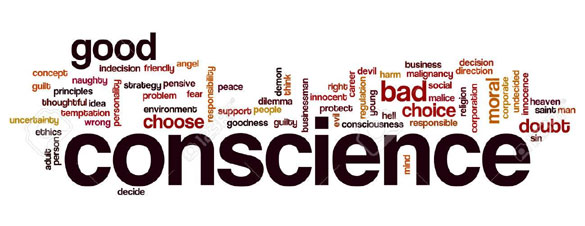
By Arman Neyazi, New Age Islam
30 June 2021
From The Holy Scriptures to the Religious Leaders and The Scholars of Different Fields Say the Same Thing, ‘Lack of Devotion Is Unworthy Of the Creator’s Attention’
Main Points:
1. The word ‘devotion’ carries a spiritual air about it.
2. Fundamentals of spiritualism have devotion embedded in their practices.
3. Is the Universe a sign of Godly Devotion to His Vicegerents?
4. Devotion in Islam means striving to live according to the commands of Allah and fulfilling the duties of Huqooq ul Ibad.
-----
The word ‘devotion’ carries a spiritual air about it. Fundamentals of spiritualism have devotion embedded in their practices. The Murshid-disciple system also works on the axis of devotion. Be it Auliya (اولیاء), the Muslim spiritual saints or the Hindu Gurus (साधू संत) their disciples' devotional stories are a part of our mystic lessons. Disciple’s devotion to their saints earns them the affection and lessons of spiritual as well as social life. There are innumerable saints, both Hindu and Muslim, who have earned everlasting respect and name because of the heavenly deeds and worldly mystical achievements of their disciples.
An Inspirational Incident of Devotion
Devotion to his wife’s love made Dashrath Manjhi a resident of Bihar, India, a world-famous ‘Mountain Man’. He singlehandedly carved out a 360-feet-long, 30-feet-high and 30-feet-wide road through the mountain, his wife had to climb to take his lunch to the fields, for there was no passage to pass through the mountain without climbing it. Manjhi’s pregnant wife fell from the mountain and died. Manjhi decided to make a passage through the mountain and achieved the feat after 22 years of untiring labour and dedication to his goal.
Is the Universe a sign of Godly Devotion to His Vicegerents?
The universe had never come into being but for the devotion of God towards His vicegerents who lived their lives according to His laws for His blessings. The creator of the universe and the skies created everything that could have been imagined for the comfort and ease of life on earth. The skies, the mountains, the oceans and the beautiful mixture of weathers look like a work of devotion towards someone who represents Him on the earth. The Creator’s kindness and forgiveness must have emancipated out of His devotional love towards His creation otherwise the disobedience of His commands and empathy towards His creation would have by now brought the earth to further decay.
Allah, the All-Merciful, accepts all the supplications of His creation irrespective of him being a good or a bad man, in one form or the other. All the supplications are answered positively by Allah, the Most Gracious is a sign of His devotion towards His creation’s
well-being.

Devotion in Islamic Terminology
Devotion in Islam means striving to live according to the commands of Allah, the Most Merciful and respectfully fulfilling the duties of Huqooq ul Ibad is a duty towards our fellow beings. God, the Almighty and All-Knowing says in Surah Al-'Ankabut, ‘But We shall be sure to guide to Our ways those who strive hard for Our cause: God is with those who do good.’ This is an assuring Ayat for the people who devotionally strive on the straight path guided by Allah and His Apostle, Prophet Muhammad (SAW). In Islam, Roza (Fasting), Namaz (Prayers), Zakat (a percentage of one's wealth given as charity to the deserving) and Haj and performing Huqooq ul Ibad are devotional duties a Muslim is supposed to perform. Consider the following Ayat that highlight how the remembrance of Allah, the Most Merciful with utmost devotion makes life here and hereafter fruitful.
You who believe, enter wholeheartedly into submission to God … (Surah Al-Baqarah - 208) — Abdul Haleem
…then stand up (for worship). And to your Lord direct (your) longing.” (Quran, 94:5-8)
Say [O Muhammad], ‘This is my way; I call to Allah upon insight, I and those who follow me.’ (Yousuf (12): 108)
But We shall be sure to guide to Our ways those who strive hard for Our cause: God is with those who do good. (Surah Al-'Ankabut - 69) — Abdul Haleem
“Say, [O Muhammad], ‘If you should love Allah, then follow me, [so] Allah will love you and forgive you your sins. And Allah is Forgiving and Merciful.'” (Quran, 3:31)
“Say, ‘Never will we be struck except by what Allah has decreed for us; He is our protector.’ And upon Allah let the believers rely.” (Quran, 9:51)
“Guide us on the straight path; the path of those upon whom You have bestowed favours.” (Surat al-Fatiha 1:6-7.)
“…Establish the prayers for indeed the prayers prevent us from immorality and sin…” (Qur’an, 29:45)
Prophetic Tradition on Devotion
And remember the name of your Lord and devote yourself to Him with [complete] devotion. (Surah Al-Muzzammil - 8) — Saheeh International
And they were not commanded except to worship Allah, [being] sincere to Him in religion, (Surah Al-Bayyinah - 5) — Saheeh International
Devotion an Important Ethics of Hinduism

(Photo courtesy: HiduWebsite.com)
-----
Those who set their hearts on me and worship me with unfailing devotion and faith are more established in yoga. (BG, 12:2)
Better indeed is knowledge than mechanical practice. Better indeed than knowledge is meditation. But better still is surrender to attachment of results, because there follows immediate peace. (12:12)
Those who honour this nectar of wisdom declared here, have faith in Me and are devoted and intent on Me as the supreme goal, they are exceedingly dear to Me. (BG 12.20)
Just fix your mind upon Me, the Supreme Personality of Godhead, and engage all your intelligence in Me. Thus you will live in Me always, without a doubt. (Chapter 12, Verse 8)
They engage in My devotion with their minds fixed exclusively on Me. (Bhagwad Gita: 9-13)
Always singing My divine glories, striving with great determination, and humbly bowing down before Me, they constantly worship Me in loving devotion. (Bhagwad Gita 9.14)
There are those who always think of Me and engage in exclusive devotion to Me. (Bhagwad Gita 9.22)
But those who dedicate all their actions to Me, regarding Me as the Supreme goal, worshipping Me and meditating on Me with exclusive devotion, (Bhagwad Gita: 12-6, 7)
What Sikhism Says About Devotion
“…overcome all fear by cherishing the Fearless Lord” (GG, 293).
“He must not terrorize anyone, nor must he submit to anyone`s fear” (GG, 1427).
He was “to be subservient to none but the True Lord” (GG, 473).
“Without morality bhakti is not practicable” (GG, 4)
“It is by our deeds that we become closer to God or become distant from Him” (GG, 6).
Devotion for the Welfare of Humanity
We find that devotion is not only a requirement of achieving the agreement of our Creator but any achievement in the world demands unequivocal devotion. Some people have achieved seemingly unachievable feats in the field of science, technology and medicine riding on the waves of utmost devotion towards their goal. Without devotion to duty towards humanity, we would not have secured an almost certain victory on the various pandemics the world has seen in the past and the deadly havocs of Covid-19 we are still witnessing around the world. The human being is facing human inflected wars among the communities, environmentally executed havocs of various kinds and political dishonesty all over the world at the moment. To bring humane ethics back in the lives of fellow beings, humankind will have to devote all its attention to the welfare of the society that is to be inherited by our coming generations.
From the holy scriptures of the world religion to the religious leaders and the scholars of different fields say the same thing, ‘lack of devotion is unworthy of the Creator’s attention. Consider the following:
Work, apart from devotion or love of God, is helpless and cannot stand alone. -Ramakrishna
Let God's grace be the mosque, and devotion the prayer mat. Let the Quran be the good conduct. - Guru Nanak
To succeed in your mission, you must have single-minded devotion to your goal. - A. P. J. Abdul Kalam
When trouble comes, focus on God's ability to care for you. - Charles Stanley
True strength lies in submission which permits one to dedicate his life, through devotion, to something beyond himself. - Henry Miller
Artwork is a representation of our devotion to life. - Agnes Martin
With devotion's visage and pious action, we do sugar o'er the devil himself. - Thomas Fuller
Devotion begins at home, inside your own awareness. Debbie Ford
And Allah Knows the Best.
---
Arman Neyazi is a columnist with NewAgeIslam.com.
URL: https://www.newageislam.com/interfaith-dialogue/salvation-abrahamic-devotion/d/125037
New Age Islam, Islam Online, Islamic Website, African Muslim News, Arab World News, South Asia News, Indian Muslim News, World Muslim News, Women in Islam, Islamic Feminism, Arab Women, Women In Arab, Islamophobia in America, Muslim Women in West, Islam Women and Feminism






 Moderate Islamist here
Moderate Islamist here


